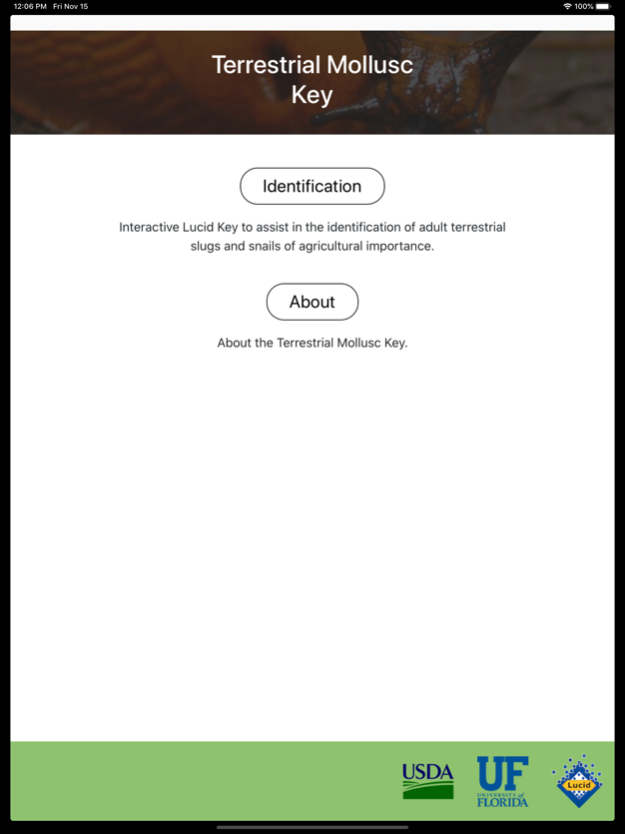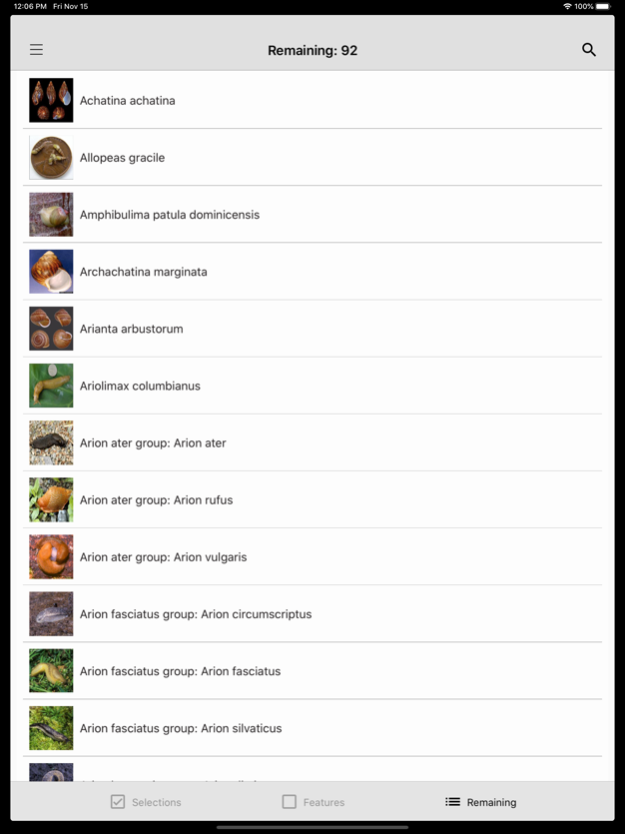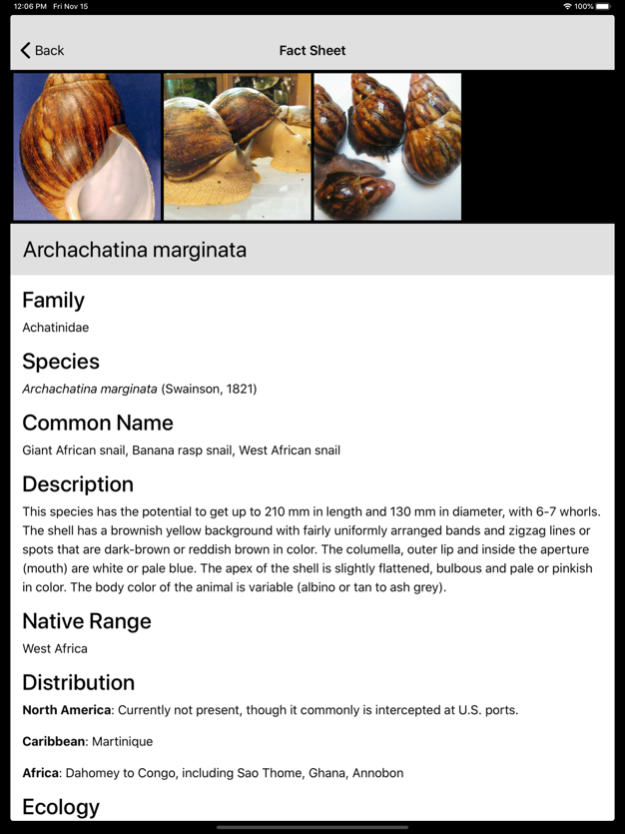Terrestrial Mollusc Key 1.1.0
Free Version
Publisher Description
The Terrestrial Mollusc key was specifically designed to assist in the identification of adult terrestrial slugs and snails of agricultural importance. The key also includes species of quarantine significance as well as invasive and contaminant mollusc species commonly intercepted at U.S. ports of entry. This key is designed for federal, state and other agencies or organizations within the U.S. that are concerned with the detection and identification of molluscs of significance. This key includes 33 families and 128 species. It should be noted that this key is not inclusive of all mollusc pests, as new species of interest arise almost daily.
The list of species included in this key was generated based on pest species reported in scholarly publications by Barker 2002, Cowie et al. 2009, and Godan 1983 as well as commonly intercepted species documented in the port of entry interception data from US Department of Agriculture, Animal and Plant Health Inspection Service, Plant Protection and Quarantine division (USDA-APHIS-PPQ) and the Florida Department of Agriculture and Consumer Services (FDACS) -Division of Plant Industry.
The key is unable to identify a few entities below the family level. This is true especially for the families Veronicellidae and Succineidae. The major reason for this is the lack of diagnostic morphological characters and the variability of members of these groups. In many cases, it is recommended that molecular techniques be used in the identification of members of these families (Holland and Cowie 2007; Gomes et al. 2010). This inadequacy of the key is, however, mitigated by the fact that most if not all members of these problematic groups are pestiferous and as such are regulated at the family level. The same is true for the species complexes (e.g., Arion hortensis group, A. ater group) included in the key.
The Terrestrial Mollusc Key was developed and published by the Center for Plant Health Science and Technology (CPHST) as part of a cooperative agreement with the Department of Entomology and Nematology, University of Florida and the United States Department of Agriculture (USDA), Animal and Plant Health Inspection Service (APHIS), Plant Protection and Quarantine (PPQ) and is under the direction of Terrence Walters, CPHST Identification Technology Program (ITP) coordinator.
The photographs utilized in this key were generously provided by those credited on each. The photographers and organizations that gave permission to use their images are also credited in the acknowledgements of the original tool (http://idtools.org/id/mollusc/). All drawings were produced by the University of Florida, unless otherwise noted.
Author: Jodi White-McLean (Department of Entomology and Nematology, University of Florida)
Editors and Advisors: John Capinera (Department of Entomology and Nematology, University of Florida) and John Slapcinsky (Florida Museum of Natural History, University of Florida)
Original Illustrations and Photography: Kay Weigel and Lyle Buss (Department of Entomology and Nematology, University of Florida)
Original Source: This key is part of the complete Terrestrial Mollusc Tool (requires internet connection) at http://idtools.org/id/mollusc/
Lucid Mobile key developed by USDA APHIS ITP
Nov 15, 2019
Version 1.1.0
Updated for iOS 13
About Terrestrial Mollusc Key
Terrestrial Mollusc Key is a free app for iOS published in the Reference Tools list of apps, part of Education.
The company that develops Terrestrial Mollusc Key is United States Department of Agriculture-APHIS. The latest version released by its developer is 1.1.0.
To install Terrestrial Mollusc Key on your iOS device, just click the green Continue To App button above to start the installation process. The app is listed on our website since 2019-11-15 and was downloaded 6 times. We have already checked if the download link is safe, however for your own protection we recommend that you scan the downloaded app with your antivirus. Your antivirus may detect the Terrestrial Mollusc Key as malware if the download link is broken.
How to install Terrestrial Mollusc Key on your iOS device:
- Click on the Continue To App button on our website. This will redirect you to the App Store.
- Once the Terrestrial Mollusc Key is shown in the iTunes listing of your iOS device, you can start its download and installation. Tap on the GET button to the right of the app to start downloading it.
- If you are not logged-in the iOS appstore app, you'll be prompted for your your Apple ID and/or password.
- After Terrestrial Mollusc Key is downloaded, you'll see an INSTALL button to the right. Tap on it to start the actual installation of the iOS app.
- Once installation is finished you can tap on the OPEN button to start it. Its icon will also be added to your device home screen.


